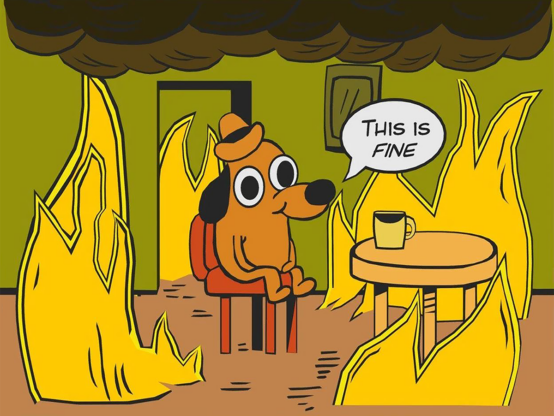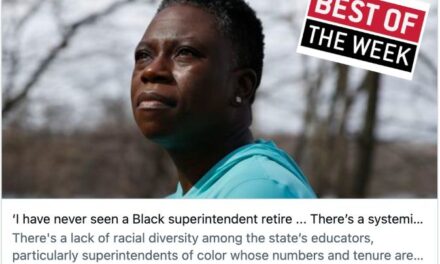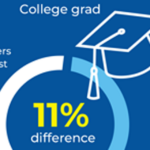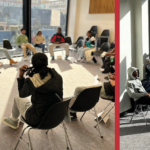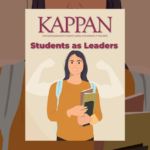How climate should be a new lens for education journalists
By Anya Kamenetz
The climate crisis is here. Actually, it’s everywhere.
And there’s broad agreement that children need to learn about it.
When I was at NPR, we commissioned a poll showing that more than 4 out of 5 American parents, including two-thirds of Republicans, agreed the subject should be taught in school. And 86% of teachers we polled said the same.
Yet it’s still more than possible to get through a year as a busy education reporter and never mention the climate – just as it’s more than possible to graduate high school without being taught the most basic facts about climate change, impacts, and solutions.
Within ed reporter circles, we’re pretty used to thinking of climate change narrowly, as a topic on the science curriculum. And that’s a worthy story – such as this update from Indiana and this one from New Jersey.
But in fact, the climate crisis is a massive, utterly transformative social phenomenon, like poverty or racism. And just as many journalists have become skilled at covering education with an equity lens, climate is a lens that is useful to put on almost any education story you could name. (Of course, these issues often intersect, as well.)
The climate crisis is a massive, utterly transformative social phenomenon, like poverty or racism.
Climate is a schools story
Quite apart from whatever goes on inside them, public schools are a major piece of publicly owned and operated infrastructure. The nation’s 100,000 public school buildings, located in every city, state, and town, with their food service operations and their bus fleets, are both threatened by the climate crisis and a big part of the response to it.
If there’s one story idea I want you to follow up on after reading this column, it’s this:
The Biden administration has passed three enormous federal spending bills which collectively provide tens of billions of dollars toward greening school infrastructure, from rooftop solar to heat pumps.
You or your audience may not give a fig for climate; you still need to cover it, because energy costs are typically the second largest line item in the budget after salaries for a school district. These federal incentives provide for lasting energy savings, sometimes with little or even zero upfront cost.
In many cases there is extra funding dedicated to low-income communities or “energy communities” — in other words, schools located in places affected by fossil-fuel development and pollution.
So call up your district and ask – are your schools in line for the cash? What will it be used for? Is it going to the communities most in need? Are they setting ambitious targets? And if not, why not?
You or your audience may not give a fig for climate; you still need to cover it.
And there’s a lot more worth covering on this topic.
Extreme weather is disrupting learning time and damaging buildings, as I covered for NPR last year. Almost 1 in 5 U.S. students attended schools in districts that were affected by federally declared natural disasters just from 2017-2019. Does that include schools near you? How are districts responding?
And what are they and other public officials doing to ensure that schools withstand extreme weather conditions so that they can fulfill their traditional role as emergency shelters when disaster strikes?
Climate is a lens, not a topic
When you start looking at education stories with a climate lens, it’s not just an add-on or a single story throughout the year. Climate is a question you can ask in almost any interview or an angle you can add to almost any topic. Here are some examples:
– Career and technical education: How well is it truly preparing students for the swift transitions that are underway in energy, transportation, agriculture, materials science, and manufacturing? In other words, everywhere? Talk to career and technical education programs to see how their offerings match up with the projected 912,000 new green jobs per year being created by the Inflation Reduction Act. And talk to students and families to see if they’re aware of these opportunities or subject to old stigmas about the trades.
– Social studies: Students are asking for civic engagement that connects them to the global movement for climate justice. This Education Week story took the voices of student climate activists seriously. It combined compelling personal stories with surprising poll data showing 63% of teens have taken action against climate change in the past two years, like signing a petition, contacting an elected official, or joining a club.
– Social-emotional learning: In the midst of a teen mental health crisis, how are schools addressing climate-related anxiety, depression, and overwhelm which 3 of 4 U.S. youth say they have experienced?
– In and behind the lessons: The fossil fuel industry has a long, documented history of influencing curricula and promulgating disinformation. Amy Westervelt’s Drilled podcast, especially Season 7, the ABCs of Big Oil, goes into riveting, investigative detail on the connection. Is that happening in your local district? Or, conversely, are students learning to decode climate lies and hoaxes alongside other forms of mis- and dis-information?
Climate is a question you can ask in almost any interview or an angle you can add to almost any topic.
– Innovative ideas: Here’s a delightful, unexpected piece from the Guardian about the explosion in creative, cooperative board games that both teach and raise players’ concern about the environment.
– Teacher training: How well are teacher training programs responding to the demand for climate education, and preparing teachers for all of the above? This local newspaper story follows teachers as they brainstorm new angles on climate and environmental learning, like a school-wide composting initiative or a citizen science project about water quality.
Education reporters have an important part to play in covering one of the biggest stories facing our society and the world. Start by focusing on the young people who will inherit that world and what they are – or aren’t – learning about climate change and how to combat it.
A former NPR education correspondent and author most recently of THE STOLEN YEAR, Anya Kamenetz writes and speaks about climate change and generational justice. Subscribe to her newsletter and follow her at @anya1anya.
Previously from The Grade
Rethinking K-12 education coverage for the post-pandemic era
‘We could have been a lot louder,’ says Kamenetz
The 9 most memorable K-12 education stories of 2022
ABOUT THE AUTHOR

The Grade
Launched in 2015, The Grade is a journalist-run effort to encourage high-quality coverage of K-12 education issues.


